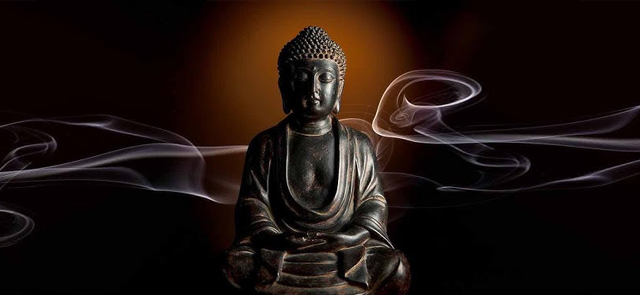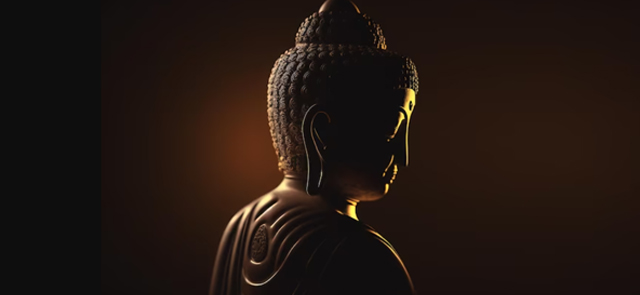When people are happy and glad, take life for granted. Whereas when they suffer, when they encounter difficulties, they seek the reason for this and the way out of their difficulty. They may wonder why some people are born in poverty and misery, while others are born in favorable conditions. Some people believe that this is due to fate, chance, or an invisible force beyond their control. They feel that they are not able to live the life they wanted, in order to always experience happiness. Therefore, they come into confusion and despair.
Karma [Chin .: Yè lì 业力] is an intentional act, an act consciously through body, speech or mind. Karma means good and bad will. Every act of will is called Karma. Buddhas and Arhats do not accumulate new Karma, since they have eliminated all their passions.
In other words, Karma is the law of moral causation. It is action and reaction in the realm of morality. It is the natural law, according to which every action produces a certain effect. So if someone makes benevolent acts, like monetary donations to charities, he will experience happiness. On the other hand, if someone makes malice acts like murder, will experience suffering. This is in fact the law of cause and effect. In this way, the result of karma from ones past, determines the nature of the current situation in his life.
Karma is itself a law. But this does not mean that there should be someone who enforces this law, nor that requires someone to enforce it. It operates in its own field without the intervention of an external, independent ombudsman.
What you sow, you will reap. Every effect arises from a cause. Under certain conditions, a cause will lead to a result. This is a universal principle, on which depends the Buddha moral.
If you want to know the causes of your past life, look the way you live today, it is the result of your past life.
If you want to know what will be the future of your life, see what you are doing today,it is the cause of your future life.
Karma is not fate or destiny. Literally, Karma means "act", "I do." The act itself is considered neither good nor bad, but yet the intention and thinking define it as such. Therefore, Karma is a deliberate, conscious and intentional action. Karma is will.
Each action has a reaction, a result. This truth applies to both the natural world [expressed by the great physist Newton] and the world of ethics. The Law of Karma is an important application of the Principle of Cause and Effect in ethics. Letting go of this law leads to the destruction of all moral obligations.
There are two types of Karma:
Good Karma [Chin .: shàn yè ? ?, Sanskrit.: Kushala]
This means it is intelligent, capable. It refers to these deliberate acts, which are beneficial for him and for others, which spring from kindness, compassion, renunciation and wisdom.
Bad Karma [Chin .: èyè ? ?, Sanskrit .: Akushala]
This means that it is not intelligent, it is not capable. Refers to these deliberate acts that spring from greed, hatred and delusion.
The unintended actions, such as walking, sleeping, breathing, have no moral consequences, so are neutral Karma, or ineffective Karma.
By practicing the Ten Good Acts and the Ten Meritorious Acts [Chin .: shí è yè shí shàn yè ?? ? ?? ?], the fully ripe fruit of such goods actions is to regenerate the higher realms of happiness, namely, Man [Chin .: rén ?], Azure [Chin .: ?xi?luó ? ??] and Deva [Chin .: ti?n ?]. In contrast, the fully ripe fruit of non-goods actions is to rebirth in the lower realms of pain, meaning Hell [Chin .: dìyù ??], Hungry Ghosts [Chin .: ègu? ??] and animals [Chin .: chùsh?ng ??].
The result of Karma can be seen either in the short or long term. Karma can either manifest its effects in this life or the next life or even after many lives.
Every cause has its effect. However, there must be conditions that are mature for the result. Whether Karma is good or bad, can be affected by the conditions under which the actions were made.







